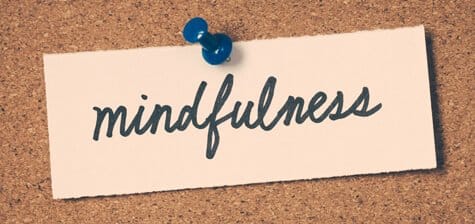Keeping your mind sharp is key to a productive and interesting life, no matter what your age. But, as we get older, ensuring you do some type of mental activity every day is strongly recommended. One of the leading institutes researching the mind, The Oxford Mindfulness Centre is showing through science and research how being mindful can help battle depression, manage pain and improve quality of life.
Using your mind, or focusing on the world around you using mindfulness techniques, can all be part of the daily battle to remain active and interested in the world. These ideas can all be a part of your routine to encourage mental health and a happier day.
 Meditation can open the mind
Meditation can open the mind
If you’re too busy or too bored, a dose of meditation can be done on your floor or comfy couch to help focus the mind. Using these free audio files (https://mbctapp.oxfordmindfulness.org/) you can open your mind and relax to help reduce stress. Taking meditation classes can help improve these skills and develop a calmer state of mind that is better equipped to deal with daily life.
Do puzzles and crosswords
While some people might just read the front or back newspaper pages, as you get older take note of puzzles page with various cryptic, word clues or general knowledge crosswords, word games, Sudoku and other maths puzzles. You don’t have to be a master or even finish them, just have a go and by stretching the old grey matter you will be doing some valuable exercise, may learn a few things and will slowly get better at the puzzles you find hard.
Staying social helps the brain
People are social animals, and no matter how you feel about it, getting out and about, meeting and talking to new folk is good for the brain. Be it a regular club, trips to galleries or just a visit to the library, being social is a key part to maintaining an active mind and finding new things to do and talk about can improve your day immeasurably.
Nibble on some brain food
Oily fish has long been proven to help improve the brain, those along with brain foods like nuts and fruits (https://www.brainandspine.org.uk/information-and-support/health-and-lifestyle-tips/brain-food/) will all provide energy for the brain and help your mind stay fresh and well fed.
Taking a nap counts as brain exercise
As we get older, we need the odd nap. Don’t take this as a weakness, it’s just a sign that your brain needs a recharge, and doing so lets the brakes come off and your imagination fly free for a short while.
Trying new things helps the brain stretch its muscles
New experiences help the brain develop at any age. Learning a new skill, meeting new people, seeing new sights or even reading a new book rather than an old favourite will all help the brain get some exercise and improve your state of mind.
Writing letters is more than an art
The art of letter writing is both a physical and mental challenge for the brain; it requires fine control for the hands and helps you get thoughts, ideas and memories out of the brain and on to paper for family or friends. Also, whoever you send it to will appreciate the effort and hopefully you’ll get another one back, too.
Any exercise also helps the brain
A gentle walk in the hills, a stroll along the beach, a spot of swimming or other exercises gets the blood moving, not only around the heart, but also through the brain, providing a healthy supply of fresh oxygen, all of which can help improve memory and brain skills (https://www.health.harvard.edu/blog/regular-exercise-changes-brain-improve-memory-thinking-skills-201404097110).
Forgetting about stuff is not a bad thing
However hard you try, we all start to forget things as we get older. It is not a sign of illness or failing faculties, just a stage of life. If you find yourself forgetting something, then remembering it later, write it down to help refresh the thought or idea in your mind and it should be easier to remember for longer in future. Use the exercises above and you should find your memory and mind being more resilient no matter what your age…







